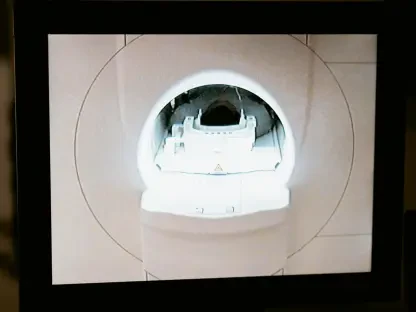In an era where healthcare systems worldwide grapple with unprecedented challenges, a staggering projection from the World Health Organization highlights the urgency of the crisis: a deficit of 4.5 million nurses is expected by 2030, painting a vivid picture of a profession under immense strain. Administrative burdens consume nearly a third of nurses’ time, diverting their focus from patient care. Amid this backdrop, a promising technology company has emerged with a groundbreaking solution, recently securing a substantial $50 million in Series A funding. Led by Balderton Capital and supported by existing investors like HV Capital, Redalpine, and Y Combinator, this company is poised to transform the nursing landscape. Founded in 2020 by twin brothers Fabio and Marcel Schmidberger, alongside Erik Ziegler, their mission is deeply personal, inspired by their grandfather’s experience in a nursing home. The goal is clear: to alleviate the paperwork overload and return precious time to frontline caregivers, addressing a critical need in healthcare.
Addressing the Nursing Crisis with Technology
The nursing profession faces a dire shortage that threatens the foundation of global healthcare, with Europe alone experiencing a gap of 1.2 million healthcare workers and the US projecting an annual shortfall of up to 450,000 nurses. This crisis is compounded by the fact that nurses spend approximately 30% of their shifts on administrative tasks, a burden that costs an estimated $246 billion in labor across these regions. Such excessive workloads fuel burnout, drive high turnover rates, and diminish the time available for meaningful patient interaction. The ripple effects are profound, undermining the compassionate core of nursing and leaving both caregivers and patients at a disadvantage. Technology has often overlooked the specific needs of nurses, focusing instead on tools for physicians, but a shift is underway. By targeting these systemic inefficiencies, innovative solutions are beginning to emerge, offering hope for a profession in desperate need of support and revitalization.
Moreover, the emotional and physical toll on nurses cannot be overstated, as the constant pressure of documentation and scheduling detracts from their ability to provide personalized care. The statistics are sobering, yet they underscore an opportunity for meaningful change through targeted innovation. Unlike generic healthcare tech, solutions tailored for nursing workflows can bridge the gap between administrative demands and patient-focused duties. Investors and industry leaders are increasingly recognizing the urgency of this issue, channeling resources into companies that prioritize the unique challenges faced by nurses. With a clear understanding of the stakes, the push for technology that empowers rather than replaces the human element in nursing is gaining momentum. This approach not only aims to improve working conditions but also seeks to restore job satisfaction, potentially reversing the trend of professionals leaving the field. The focus is on creating sustainable improvements that honor the critical role nurses play in healthcare systems worldwide.
Innovative AI Solutions for Caregivers
At the forefront of this transformation is an AI-powered companion designed specifically for nursing workflows, setting it apart from tools built primarily for physicians. Developed through extensive collaboration with nurses across tens of thousands of hours in care facilities, this technology actively listens during patient interactions, interprets spoken notes, and automates documentation and scheduling in real time. Seamlessly integrating with Electronic Health Records (EHRs), it allows nurses to prioritize patient care over clerical tasks. A standout feature is the proprietary AI models that operate locally on smartphones, eliminating the need for constant internet connectivity. This ensures reliability even in areas with poor Wi-Fi while prioritizing data protection—a pioneering step in healthcare AI. Additionally, the system’s ability to understand complex medical terminology, regional dialects, and support non-native speakers makes it accessible to a diverse workforce, enhancing its practical impact.
Beyond its technical capabilities, the real-world impact of this AI tool is already evident in Germany and Austria, where 1,100 care facilities and over 75,000 nurses have adopted it, saving up to 30% of their shift time. This newfound efficiency translates into improved working conditions and higher job satisfaction, with care homes even advertising the tool as a benefit in job postings to attract and retain talent. The mission to restore the joy of nursing by minimizing administrative burdens resonates deeply within the industry. Investors, including Balderton Capital’s Daniel Waterhouse, have praised the technology for empowering nurses to focus on what truly matters—patient care. As the tool continues to gain traction, its ability to balance technological advancement with the human-centric ethos of nursing stands out. This innovation represents a significant step toward addressing the dual challenges of shortages and overload, offering a glimpse into a future where nurses are supported rather than overwhelmed by their responsibilities.
Expanding Horizons and Future Impact
With the recent $50 million funding, plans are in motion to expand operations across Europe and into the US market, aiming to eliminate administrative obstacles on a broader scale. This investment signals strong confidence in the potential of AI to reshape healthcare by addressing the underserved needs of nurses, who form the backbone of medical systems. The focus is not on replacing the human touch but on enhancing efficiency, ensuring that caregivers can dedicate more time to meaningful patient interactions. As the technology scales, it promises to tackle the systemic issues contributing to the nursing crisis, from burnout to retention challenges. The vision is ambitious yet grounded in practicality, with an emphasis on creating tools that resonate with the day-to-day realities of nursing. This expansion is a critical step toward making a lasting impact, potentially setting a new standard for how technology supports healthcare professionals in diverse environments.
Looking back, the journey of integrating purpose-built AI into nursing workflows marked a turning point for a profession long burdened by inefficiencies. The early success in Europe, coupled with significant financial backing, underscored the transformative potential of such innovations. As the expansion unfolded, it became evident that addressing administrative overload was not just about saving time but about revitalizing the essence of nursing. The focus shifted to actionable next steps, such as refining the technology to meet the unique needs of different regions and healthcare systems. Future considerations included fostering partnerships with care facilities to ensure widespread adoption and continuous feedback for improvement. By championing a balance between technological progress and empathetic care, the path was paved for a more sustainable healthcare landscape. The strides made offered a compelling blueprint for how targeted solutions could empower nurses, ultimately benefiting patients and systems alike.









